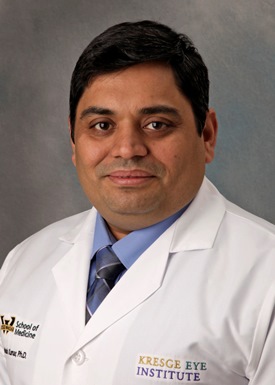
The Wayne State University School of Medicine's Ashok Kumar, Ph.D., will present at the first International Symposium on Antimicrobial Hydrolytic Enzymes: The Lysin Meeting, hosted by The Rockefeller University in New York City.
The conference is the first of its kind since lysins - enzymes produced by a virus in the final stage of the lytic cycle of viral reproduction - were explored as potential therapeutics and alternatives to antibiotics.
In 2011, Dr. Kumar, an assistant professor of Ophthalmology and of Anatomy and Cell Biology, conceived an idea for bacteriophage-based therapeutics using a Special Research Scholar Award from Research to Prevent Blindness.
"Antimicrobial resistance is a serious and growing public health problem. It is estimated that by 2050 antimicrobial resistance will kill more people than cancer," Dr. Kumar said. "The pressing need to develop alternative antimicrobial strategies is especially acute in staphylococcal infections, which often are multi-drug resistant, and remain the leading cause of both hospital and community-acquired infections."
Bacteriophages, or phages, are viruses that infect bacteria.
"Although our early findings were published in Antimicrobial Agents & Chemotherapy in 2014, I will be presenting new data on the use of bacteriophages to treat S. aureus infections in ocular and skin animal models," Dr. Kumar said. "Over the years, we have exploited the ways to engineer phage endolysins to specifically target the infecting pathogen without disrupting the normal microbiota of the host, a major drawback of antibiotics. Moreover, we showed that repeated use of phage endolysins does not allow the development of resistance, another shortcoming of antibiotic use. In the future, we plan to incorporate phages or endolysins in bandages or other biomaterials that can be applied directly on open wounds or in burn patients, which often are colonized with multi-drug resistant bacterial strains."
Last year, Wayne State University, in collaboration with the United States Department of Agriculture, filed a patent based on Dr. Kumar's discovery.
"I would like to thank the organizers for recognizing our work on phage endolysins. I think it will be a great opportunity for future collaborations and possible partnerships with companies that are participating in the symposium," he said.